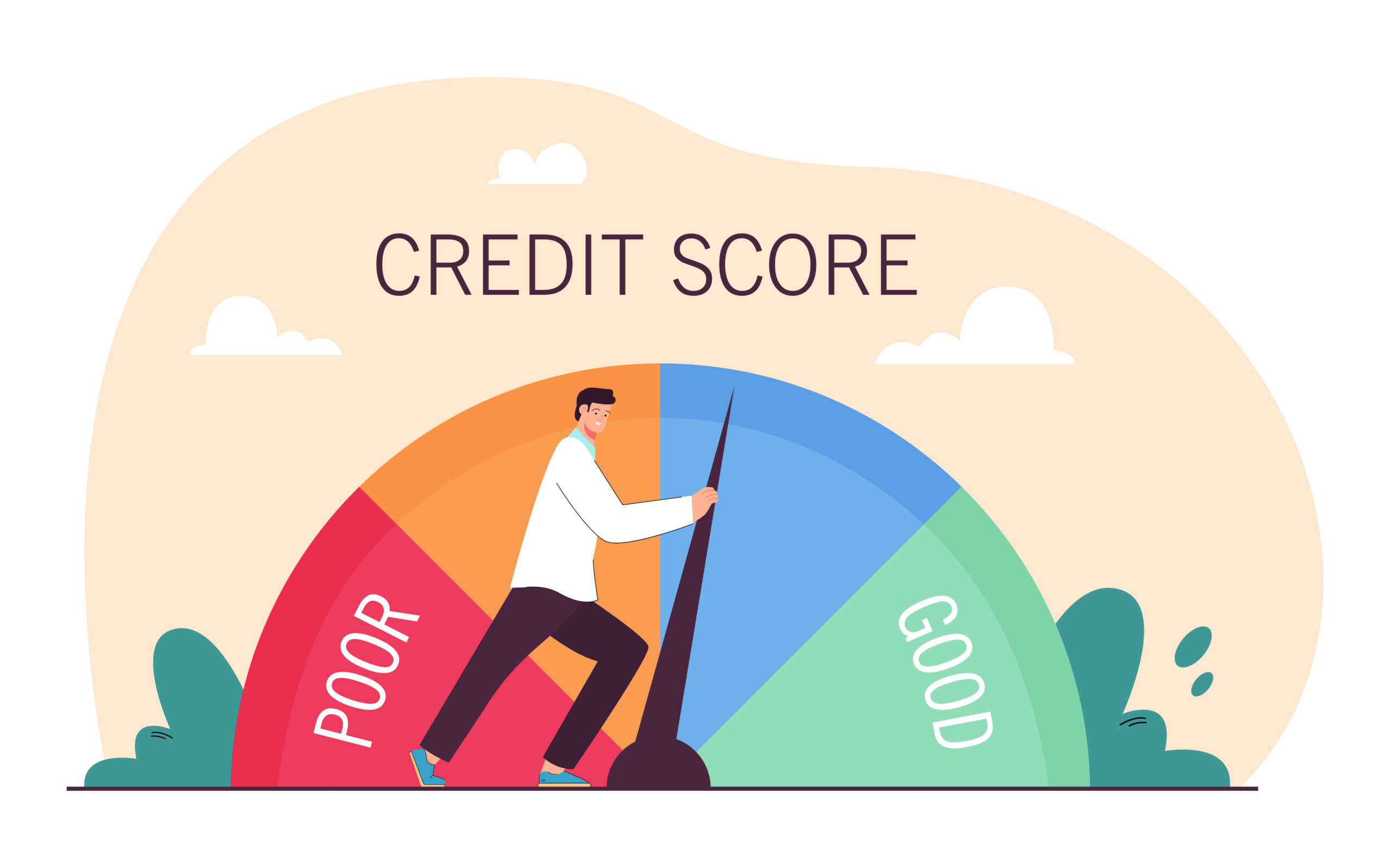How to Improve Credit Score Fast in 2025: 15 Proven Strategies That Actually Work

How to Improve Credit Score Fast: Boost your credit score fast in 2025 with these 15 expert-backed tips. Learn how to fix bad credit, pay smarter, and build long-term financial health.
🏁 Introduction
Your credit score can open—or close—the doors to financial freedom. Whether you want a mortgage, a car loan, or even a premium credit card, your credit score is one of the most critical numbers in your life.
In 2025, lenders rely more than ever on AI-driven credit models like FICO 10T and VantageScore 4.0. That means old habits won’t cut it anymore—you need smart, data-backed strategies to raise your score quickly and sustainably.
In this detailed guide, you’ll learn exactly how to improve your credit score fast in 2025, even if you’re starting from scratch or dealing with bad credit.
🧩 What Is a Credit Score and Why It Matters
Your credit score is a three-digit number (usually between 300 and 850) that shows how likely you are to repay borrowed money.
Credit Score Ranges (FICO Model)
| Score Range | Category | Meaning |
|---|---|---|
| 300 – 579 | Poor | You’ll likely face high interest rates or loan rejection |
| 580 – 669 | Fair | Some lenders may approve but with higher costs |
| 670 – 739 | Good | Generally acceptable for most credit products |
| 740 – 799 | Very Good | Eligible for better terms and interest rates |
| 800 – 850 | Excellent | You get the best deals, low rates, and fast approvals |
💡 1. Check Your Credit Report for Errors
Before you do anything else, request your free credit report from all three bureaus:
👉 AnnualCreditReport.com
You can now access it once a week for free (post-COVID update).
Look for:
- Incorrect late payments
- Accounts you didn’t open
- Wrong balances or credit limits
If you find errors, file a dispute online with the credit bureau. Disputes are usually resolved within 30 days and can instantly boost your score.
💳 2. Pay Your Bills on Time—Every Single Time
Payment history makes up 35% of your FICO score. Even one missed payment can drop your score by up to 100 points.
✅ Set up auto-pay for minimum payments
✅ Use calendar reminders or apps like Mint or Monarch Money
✅ If you’ve missed a payment, pay ASAP—scores recover faster if you act quickly
Pro tip: Ask creditors for a “goodwill deletion” if you’ve been late only once but have a strong payment record.
⚖️ 3. Reduce Your Credit Utilization Ratio
Your credit utilization ratio (CUR) = Credit Used ÷ Credit Limit
Example:
If you have a $10,000 limit and use $5,000, your CUR = 50%.
To improve your score, keep CUR below 30%, ideally under 10% for the best impact.
Ways to do it:
- Pay off part of your balance before the statement date
- Ask for a credit limit increase
- Spread spending across multiple cards
🧾 4. Keep Old Accounts Open
Credit history length accounts for 15% of your score.
When you close old credit cards, you reduce your average credit age and available limit—both hurt your score.
✅ Keep your oldest accounts open, even if you rarely use them.
✅ Use them occasionally to prevent closure due to inactivity.
🧠 5. Mix Up Your Credit Types
Credit bureaus love seeing you manage different types of credit:
- Credit cards (revolving credit)
- Personal loans
- Auto loans
- Mortgage
Don’t take unnecessary loans, but if your profile lacks diversity, consider a credit-builder loan from platforms like Self, SeedFi, or Credit Strong.
🔍 6. Limit Hard Inquiries
Every time you apply for a new credit card or loan, the lender performs a hard inquiry—which can temporarily lower your score by 5–10 points.
✅ Avoid multiple applications within a short time frame.
✅ For rate shopping (like auto or mortgage loans), FICO counts all inquiries within 45 days as one.
💸 7. Pay More Than the Minimum Balance
Only paying the minimum keeps your debt high and your score low.
Instead, pay off full balances or at least twice the minimum each month.
It lowers your utilization and signals responsible credit behavior.
📈 8. Use Experian Boost or Similar Tools
Tools like Experian Boost allow you to add utility, phone, and streaming payments to your credit file.
This can raise your score by 10–20 points instantly, especially if you have a thin credit history.
💬 9. Negotiate with Creditors
If you have delinquent accounts or charge-offs:
- Call the creditor and ask for a “Pay-for-Delete” agreement (they remove the negative mark once paid).
- If not possible, ask for a settlement to mark it as “Paid in Full.”
Always get agreements in writing before making payments.
📊 10. Become an Authorized User
If you have a family member with a good credit card history, ask them to add you as an authorized user.
You’ll benefit from their credit history, instantly improving your own score (without needing to qualify yourself).
Choose someone who:
✅ Has on-time payments
✅ Keeps low balances
✅ Has long account history
💼 11. Avoid Closing Multiple Accounts at Once
Closing several accounts reduces both average credit age and available credit, which can sharply drop your score.
Instead, space closures months apart or keep unused cards active.
💰 12. Pay Twice a Month
Most credit bureaus update once a month, right after your statement closes.
By paying mid-cycle and again before the due date, you keep your reported balance lower, improving your utilization score.
🏦 13. Build Credit with a Secured Credit Card
If your credit score is below 600, consider a secured credit card (like Discover it® Secured or Capital One Platinum Secured).
You deposit money (say $200), and that becomes your credit limit.
Use it wisely and pay on time—it’s a proven way to rebuild credit within 6–12 months.
💬 14. Use Credit-Builder Apps
In 2025, apps like Kikoff, Grain, and Tomocredit are trending in the U.S. for rebuilding credit without traditional loans.
These report small monthly payments to bureaus, boosting your payment history automatically.
🔁 15. Monitor Your Credit Regularly
Set up credit alerts with Experian, TransUnion, or Equifax.
This helps you detect:
- Identity theft
- Sudden score drops
- Unauthorized hard pulls
Free services like Credit Karma or WalletHub update your score weekly and send alerts for any changes.
📅 How Long Does It Take to Improve Your Credit Score?
It depends on your starting point and consistency.
| Starting Score | Typical Time to Reach 700+ |
|---|---|
| 500–579 (Poor) | 12–18 months |
| 580–669 (Fair) | 6–12 months |
| 670–739 (Good) | 3–6 months |
| 740+ (Very Good) | Ongoing maintenance |
Consistency is key—pay on time, keep balances low, and avoid new debt.
🔒 Bonus: Protect Your Credit from Fraud
Identity theft is rising in 2025. Secure your credit by:
- Freezing your credit report with all 3 bureaus
- Using 2FA (Two-Factor Authentication) for all financial logins
- Reviewing statements monthly for suspicious charges
If you suspect fraud, report immediately to the FTC IdentityTheft.gov.
💬 Expert Tip: The “Snowball” vs. “Avalanche” Debt Payoff Methods
| Method | Focus | Pros | Best For |
|---|---|---|---|
| Snowball | Pay smallest debts first | Quick wins, motivation | People needing momentum |
| Avalanche | Pay highest interest first | Saves more money | People disciplined with budget |
Choose the one that keeps you consistent—it’s not about speed, it’s about persistence.
📚 FAQs
Q1. How can I raise my credit score by 100 points quickly?
Pay down your credit card balances, fix errors, and use tools like Experian Boost. Many see 100+ point improvements in 3–6 months.
Q2. Does checking my credit score lower it?
No. Checking your own score is a soft inquiry and doesn’t affect your credit.
Q3. What’s the best app to monitor credit in 2025?
Top options: Credit Karma, Experian App, MyFICO, and WalletHub.
Q4. Should I use credit repair companies?
They can help if you’re overwhelmed, but everything they do, you can also do yourself for free. Be cautious of scams.
🎯 Conclusion: Your Path to Financial Freedom
Improving your credit score fast isn’t about tricks—it’s about smart habits, consistency, and understanding how credit really works.
Start by:
✅ Reviewing your credit reports
✅ Paying bills on time
✅ Keeping utilization low
✅ Using new tools like Experian Boost
✅ Monitoring regularly
Within months, you’ll notice a steady climb—and with time, your financial opportunities will grow exponentially.







